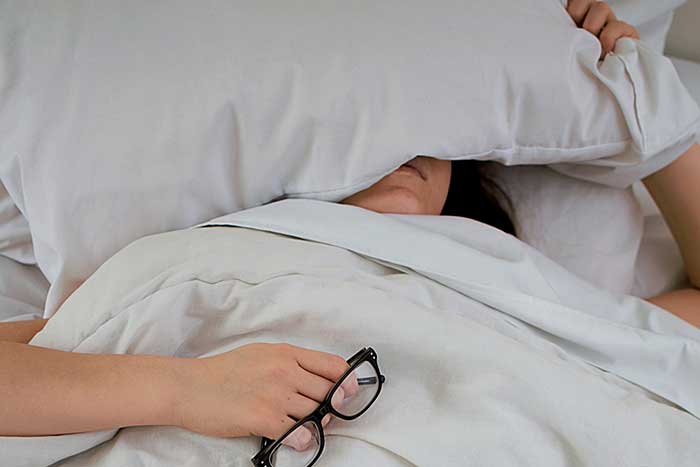“I can sleep after I graduate” has become the unhealthy mantra of many a grad student who feels there’s just not enough time in the day to get it all done, from required reading to internships to thesis—who has time to sleep?

But you know that you can’t pull these all-nighters indefinitely. You’re getting more caffeine-resistant by the day. And your hopes of getting that graduate degree may go up in smoke. So before the crash, check out these 8 strategies every grad student needs to get their Zzzz.
1. Get Your Exercise
Don’t underestimate it. Exercise promotes brain and mental health, so you’ll feel more alert and sharp when you’re studying. Physical activity, more so than mental activity, helps your brain and body slip into a natural circadian rhythm.
Now, when it’s time to sleep, you can go to sleep quickly and have more restorative sleep. You can then get more out of your day and have plenty of time to sleep.
It also boosts your immune function. So you own stress and feel more in control of your day.
That’s the opposite of a vicious cycle. It’s a physical and mental health booster that can help you perform better in every aspect of life.
Even when completing PhD programs online, make sure you get up and get your body moving regularly.
2. Avoid Anything Strenuous Right Before Bed
Pushing yourself to your limits increases cortisol in your body. Cortisol, also known as the stress hormone, is the same hormone that wakes you up in the morning and keeps your eyes wide on sleepless nights.
Reducing cortisol production in the two to three hours before bed will help you get better sleep.
3. Plan Your Caffeine Intake
Coffee and energy drinks can be a lifesaver when a deadline is breathing down your neck. But don’t let it become a habit. Caffeine also increases cortisol, and it takes many hours for caffeine to degrade in your system.
You’ll sleep and perform better if you can stick with your morning cups and save the coffee pot full of energy for emergency situations only.
As an added bonus, you’ll maintain your caffeine sensitivity. So this stimulant will work better when you do need it.
4. Don’t Drink Before Bed
Yes, water is okay. But alcohol is the enemy of sleep. It may seem that it knocks you out. But it disrupts your natural sleeping rhythm.
You’re asleep, but you’re not going through all of the sleep stages you need to heal and wake up feeling rested.
If you do drink and go to sleep, you may wake after four hours feeling wide awake and mistake this for a good night’s rest. But that’s just an overproduction of cortisol. It will lead to a crash later.
5. Plan Tomorrow Today
Deadlines sneak up on you when you don’t have a plan. It may feel like you don’t have enough time to balance life, work, family, and school.
But time is distorted by our minds. You’ve heard the saying “time flies when you’re having fun.” It also flies when you’re not paying attention to it. We’ve all lost hours on social media like this.
Once you start planning how you’ll use your time, time seems to slow down. It’s like having more time in your day.
So now, you get more done during the day and feel comfortable getting a quality 7 to 8.
6. Set a Bedtime Ritual
Your brain loves habits, good and bad, so leverage this to create a positive habit around sleep.
You can train your mind to go to sleep immediately when it hits the pillow through a ritual and wake up automatically at the same time every day.
Sound like magic? It isn’t. This is just a normal body function we’ve disrupted with our busy lives.
Do what works for you:
- Gentle music
- Gratefulness Journal
- Meditation
- Mindfulness exercise
- Shower or bath
- Spending time hugging a pet
- Herbal tea
- Warm towel with lavender
7. Set a Bedtime
You may not be able to stick with it every single night, but you’ll go to sleep faster and get better sleep if you go to sleep and get up around the same time every day.
This works with your body’s natural sleep clock. Start your bedtime ritual around one hour before bedtime.
8. Avoid Blue Light
Make sure devices like the phone, tablet, TV, and laptop aren’t part of your nighttime ritual. They emit blue light which is a cue for our brains to wake up. You’ve probably experienced its effects when you were tired but decided to watch some YouTube videos and suddenly you weren’t tired anymore.
Avoiding blue light at bedtime can help you naturally ease into sleep.
